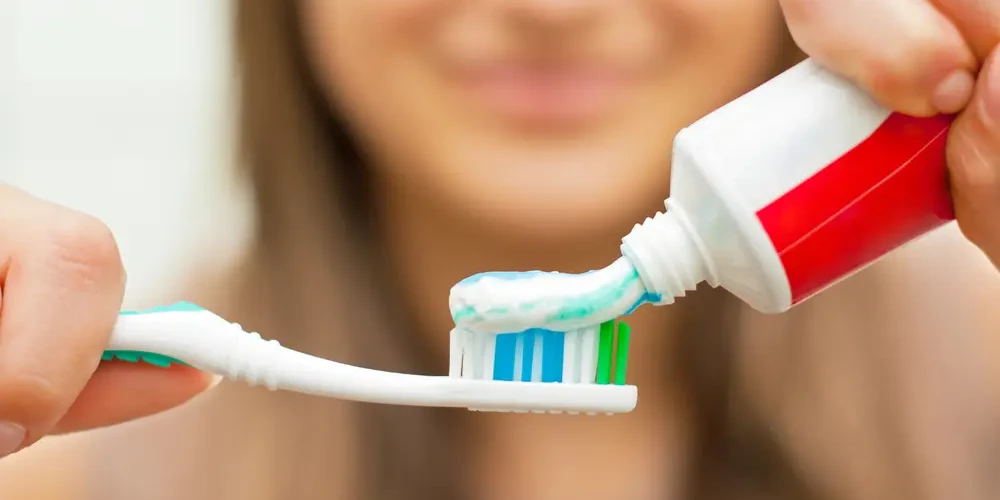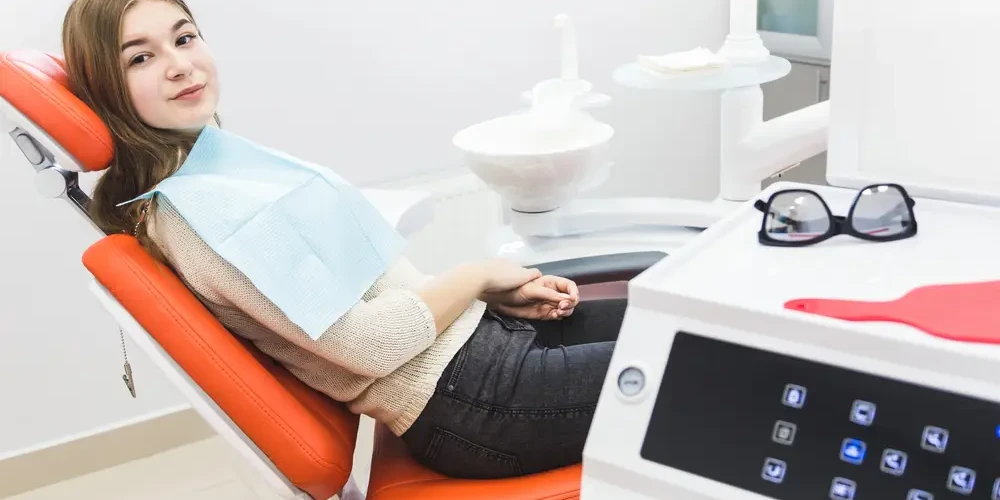Green tea is enjoyed worldwide for its impressive health benefits, from boosting metabolism to providing a rich source of antioxidants. However, for those who regularly sip on this beloved beverage, the question remains: Can green tea stain your teeth? In this article, we’ll explore the science behind green tea and dental discolouration, compare it to other teas, discuss how it measures up to coffee, and provide practical advice for keeping your smile bright.
Does Green Tea Stain Your Teeth?
Yes, green tea can stain your teeth, though it is less likely to do so than black tea. The staining occurs because green tea contains tannins, naturally occurring compounds that give tea its slightly bitter and astringent flavour. Research has shown that tannins significantly contribute to enamel staining, even in green tea varieties. Tannins promote the buildup of chromogens, pigmented molecules that can bind to enamel and lead to staining. Although green tea has a lower tannin content compared to black tea, it can still gradually discolour your teeth over time, especially with frequent consumption.
Matcha: A Special Case of Green Tea
Matcha is a powdered form of green tea made from ground whole tea leaves. Because of its concentrated nature, matcha has a higher tannin content than traditionally steeped green tea. This means it has a greater potential to stain your teeth, despite offering numerous health benefits such as higher antioxidant levels. The vibrant green colour of matcha can also leave surface stains on your teeth.
Herbal Teas and Staining Potential
Herbal teas, which are made from herbs, flowers, and fruits rather than true tea leaves, typically contain little to no tannins. This makes most herbal teas a safer choice in terms of staining. However, certain herbal teas—especially those with dark pigments, like hibiscus or berry teas—can still cause discolouration. These teas contain chromogens, which can stain enamel if consumed regularly.
Comparing Tea to Coffee: Which Is Worse for Staining?
Both tea and coffee are common culprits when it comes to teeth staining, but which is worse?
- Tannin Content: Tea generally contains more tannins than coffee, which means it has a higher potential for causing stains. However, the darker colour of coffee can lead to quicker, more noticeable surface stains.
- Staining Mechanism: Coffee primarily stains the outer layer of enamel due to its dark colour and acidic nature. Tea, on the other hand, not only stains the enamel but also penetrates deeper into the tooth structure because of tannins.
- Green Tea vs. Coffee: Green tea tends to produce a more yellowish stain, while coffee creates darker brown discolouration. The type of stain that appears depends on the individual's enamel and oral hygiene habits.
In summary, both beverages can cause staining, but tea might have a more lasting impact on deeper layers of the tooth. Practicing good oral hygiene and moderating your intake of both drinks can help maintain a brighter smile.
Which Teas Are Least Likely to Stain Your Teeth?
If you’re looking to minimise the risk of teeth staining while still enjoying a warm cup of tea, here are your best options:
- White Tea This tea is made from young tea leaves and buds, and it has a lower tannin content than both green and black tea. As a result, white tea is one of the least likely to stain your teeth.
- Herbal Teas (Lightly Coloured Varieties) Teas made from chamomile, peppermint, or rooibos are low in chromogens and tannins. These herbal teas are a safe bet if you’re trying to avoid discolouration.
- Green Tea (High-Quality, Light Brews) Lightly brewed, high-quality green teas may stain teeth less than more concentrated or lower-quality varieties. Opting for a shorter steep time can also help minimize staining.
Factors That Influence Staining
Several factors affect how much tea contributes to teeth staining:

Enamel Health
Teeth with thin or worn-down enamel are more susceptible to stains, as pigments can penetrate more easily.

Frequency of Consumption
The more often you drink tea throughout the day, the greater the risk of staining. Continuous exposure to tannins and chromogens increases the likelihood of discolouration.

Tea Temperature
Hot tea may stain teeth more easily than iced tea because heat can make tannins adhere more strongly to enamel.
How to Avoid Tea Stains on Teeth
There are ways to enjoy your favourite teas while reducing the risk of discolouration:
- Rinse Your Mouth with Water: Rinsing your mouth after drinking tea helps wash away tannins and prevents them from sticking to your teeth.
- Practise Good Oral Hygiene: Brushing and flossing regularly can remove plaque buildup that would otherwise trap stains. Consider using a whitening toothpaste, but be cautious of overuse to avoid damaging enamel.
- Use a Straw: Drinking iced tea through a straw reduces the contact between the tea and your teeth, minimizing the potential for staining.
- Limit Tea Time: Instead of sipping tea throughout the day, try enjoying it all at once to limit exposure to tannins.
- Regular Dental Cleanings: Professional cleanings can remove surface stains and help keep your teeth bright.
Can Green Tea Benefit Your Oral Health?
While it’s true that green tea can stain your teeth, it also offers some benefits for oral health. Green tea contains catechins, powerful antioxidants with antibacterial properties that may reduce harmful bacteria in the mouth and lower the risk of cavities and gum disease. These benefits don’t negate the potential for staining, so it’s important to strike a balance between enjoying green tea and maintaining a bright smile.
What If Your Teeth Are Already Stained?
If you’re dealing with tea-related discolouration, there are several ways to restore your smile:
- Whitening Toothpaste: This can be effective for removing surface stains over time, though it won’t change the natural colour of your teeth.
- At-Home Whitening Kits: These kits can yield visible results but should be used with caution to avoid sensitivity.
- Professional Whitening Treatments: If stains are significant, professional whitening treatments at your dentist’s office can provide dramatic results and are often more effective than over-the-counter options.
Professional Whitening Treatments
For those concerned about significant tea or coffee stains, professional whitening treatments offer a reliable solution. Studies indicate that tannin-induced stains can be difficult to remove without professional care, as tannins penetrate the enamel and bind to its surface. These treatments, available at your dental clinic, use high-concentration whitening agents that can effectively break down even the most stubborn stains.
- In-Office Whitening: This is the most effective and fastest way to whiten teeth. Your dentist applies a professional-grade bleaching gel and may use light or laser technology to accelerate the whitening process. Results are often visible after just one appointment.
- Take-Home Whitening Kits: Your dentist can provide custom-fitted trays and professional whitening gel for home use. While results take longer than in-office treatments, this option allows for gradual whitening under your dentist’s supervision.
- Maintenance and Sensitivity: After whitening, your dentist may recommend products to minimise sensitivity and help maintain your results. Regular dental check-ups will also ensure your smile stays bright.
Conclusion: Should You Be Concerned About Tea Staining Your Teeth?
While green tea and matcha have a higher risk of staining compared to white or lightly coloured herbal teas, you don’t have to give them up entirely. Herbal teas and white teas are generally safer options for those looking to minimise discolouration. By taking steps like rinsing your mouth, practising good oral hygiene, and visiting your dentist regularly, you can enjoy tea while maintaining a healthy, bright smile. If you’re concerned about existing stains, speak to your dentist about the best whitening options for you.
You may also like
Best Whitening Toothpaste: A Guide to Brighter Smiles
Explore top whitening toothpastes for a brighter smile. Our guide highlights key products, ingredients & tips to remove stains & maintain oral health.
Wisdom Teeth Pain Relief —Soothe Wisdom Teeth
Discover a range of solutions for alleviating wisdom teeth pain, from home remedies to professional treatments, to ease discomfort and aid recovery.
Wisdom Tooth Pulled Infection
Discover the symptoms of infection following wisdom tooth removal, along with causes and treatments to aid healing and prevent further issues.
How Long Does Wisdom Teeth Removal Take
Find out how long wisdom teeth removal typically takes, including the procedure duration and factors that can influence the time needed for a successful extraction.





